
Caroline Claisse
Lecturer
I am a Lecturer in Human-Computer Interaction and Interaction Design at Open Lab, Newcastle University. I trained as a designer at the University of the Arts London and the Royal College of Art in London. I completed my practice-based PhD at Sheffield Hallam University in 2019, where I explored the potential of interactive technologies for cultural heritage. My design-led research focused on engaging the local community in the process of co-creating multisensory and digitally-augmented experiences of heritage.
In my current work, I take a co-creative and Research through Design (RtD) approach to explore digital technologies and personal data for health and wellbeing. I draw from Feminist, Social Justice and More-than-Human discourses to inform my critical thinking and reflexivity. My ongoing research includes co-designing supportive technologies for self-care and self-management of health conditions; exploring data practices in peer-support and voluntary organisations for community wellbeing; addressing health inequalities in maternal mental health, and investigating the potential of multisensory interactions to support spirituality and community practice of faith.
I was a Research Associate on the EPSRC-funded project INTUIT (2019-2021) and an Innovation Fellow on the EPSRC Centre for Digital Citizens (2021-2023). Across both projects, I led participatory research on Digital Health and Community Technologies, collaborating with a diverse group of stakeholders.
In the past, I have led artistic projects funded by Arts Council England and worked in industry as an Interaction Designer, developing exhibition and interactive design for cultural institutions including the National Trust, English Heritage, Historic Royal Palaces in the UK, and the Museum of Modern Art in New York (USA).
Please do get in touch via email or on Twitter @CarolineClaisse, and check my Google Scholar for latest publications.
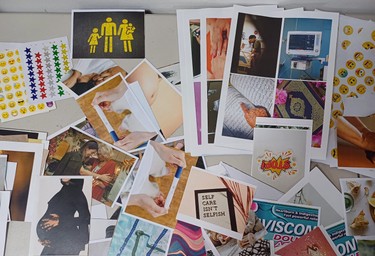
ERicar2: Engaging Resettled migrant women in the co-creation of an antenatal care information resource
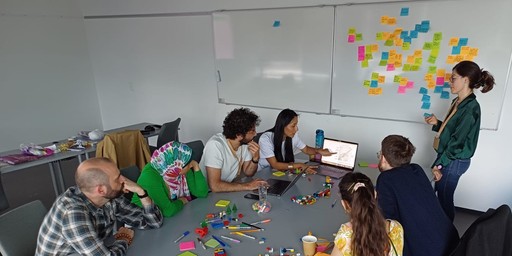
Human Building Interaction (HBI) and Design for Climate Change
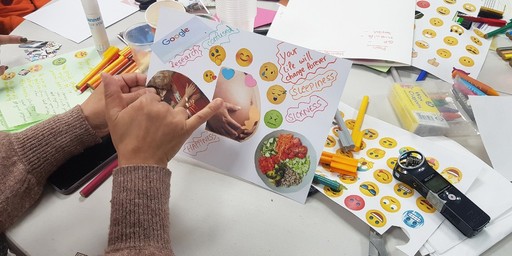
ERicar: Co-creating an antenatal care information resource with Czech-Slovak Roma women
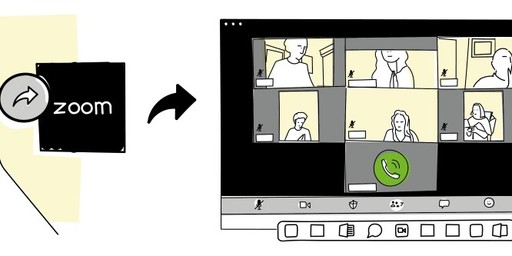
Investigating Buddhism Practice during COVID-19 to Inform Design for the Online Community Practice of Faith
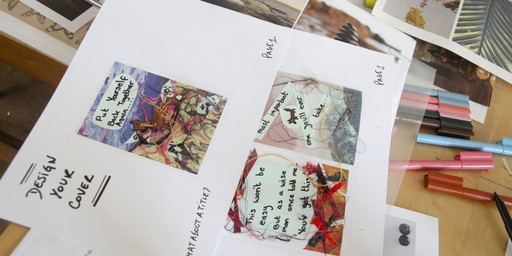
Place-based approach for providing community mental wellbeing
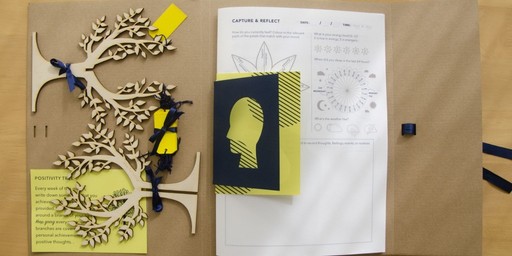
Investigating Daily Practices of Self-care to Inform the Design of Supportive Health Technologies for Living and Ageing Well with HIV

INTUIT Interaction design for trusted sharing of personal health data to live well with HIV
2025
Resound: A Moment of Reflection in a Techno-Spiritual RtD
2025 – TEI '25: Nineteenth International Conference on Tangible, Embedded, and Embodied Interaction
Exploring Alternative Socio-Technical Systems for Careful Data Work in Recovery Contexts
2025 – CHI Conference on Human Factors in Computing Systems (CHI '25)
Pace Layers and Research Products
2025 – Research Products and Time: When, For How Long, And Then What? CHI '25
ERicar zine
2025 –
Insights from ERicar: Engaging Roma women in the co-creation of an antenatal care information resource
2025 – Women's Studies International Forum
'See the Whole of Me’ A community, life-course approach to maternal listening
2025 – Newcastle
Navigating Intersections of Religion/Spirituality and Human-Computer Interaction
2025 –
Role of Augmented Reality in Tertiary Care: Qualitative Investigation Using Thematic Analysis
2025 – JMIR XR and Spatial Computing (JMXR)
ERicar2: Engaging Resettled migrant women in the co-creation of an antenatal care information resource (Arabic)
2025 – Newcastle University
ERicar2A North Africans report
2025 – Newcastle University
2024
Perspectives of healthcare professionals and people living with HIV in dialogue: on information sharing to improve communication at the consultation
2024 – AIDS Care
ERicar: Engaging Roma women in the co-creation of an antenatal care information resource
2024 – Newcastle University
Mediating the Sacred: Configuring a Design Space for Religious and Spiritual Tangible Interactive Artifacts
2024 – TEI '24: Proceedings of the Eighteenth International Conference on Tangible, Embedded, and Embodied Interaction
‘Chugging along, plugging in and out of it’: Understanding a place-based approach for community-based support of mental health recovery
2024 – Social Science & Medicine
Understanding Antenatal Care Needs through Co-Creation with Roma Women to Inform the Design of mHealth Technologies
2024 – CHI Conference on Human Factors in Computing Systems (CHI ’24)
Healthcare professionals' perspectives on working with patient-generated data for supporting person-centred HIV care
2024 – British HIV Association (BHIVA) Conference
Design Implications for a Social and Collaborative Understanding of online Information Assessment Practices, Challenges and Heuristics
2024 – Proceedings of 22nd European Conference on Computer-Supported Cooperative Work
Motherhood Zine Collage
2024 – Open Lab, Newcastle University
Human Building Interaction and Design for Climate Change.
2024 – ACM Designing Interactive Systems
Travelling Arts x HCI Sketchbook: Exploring the Intersection Between Artistic Expression and Human-Computer Interaction
2024 – Extended Abstracts of the 2024 CHI Conference on Human Factors in Computing Systems (CHI EA '24)
Making Alternatives through Design for Mediated Spiritual Practice
2024 – HttF '24 : Halfway to the Future Symposium
2023
‘Keeping our Faith alive’: Investigating Buddhism practice during COVID-19 to inform Design for the online community practice of Faith
2023 – CHI Conference on Human Factors in Computing Systems (CHI '23)
Co-Design within and between Communities in Cultural Heritage: Current and Open Questions
2023 – Multimodal Technologies and Interaction
People with long-term conditions sharing personal health data via digital health technologies: A scoping review to inform design
2023 – PLOS Digital Health
Perspectives of Healthcare Professionals and people living with HIV in dialogue: on information sharing to improve communication at the consultation
2023 – The 15th AIDSImpact Conference 2023
Unpicking Epistemic Injustices in Digital Health: On the Implications of Designing Data-Driven Technologies for the Management of Long-Term Conditions
2023 – AAAI/ACM Conference on Artificial Intelligence, Ethics, and Society (AIES '23)
Design Principles for Participatory Design in Religious & Spiritual Contexts
2023 – Spirituality, Religion, and Interactive Technology Design (SPIRITED) Collective Zine
ERicar: Engaging Roma women in the co-creation of an antenatal care information resource
2023 – British Sociological Association, Medical Sociology Group Conference
Engaging Czech-Slovak Roma women in the co-creation of an antenatal care information resource
2023 – European Public Health Conference
Seeking Resonances for Remote Communal Chanting Practices
2023 – Designing Interactive Systems (DIS) 2023
Engaging Czech-Slovak Roma women in the co-creation of an antenatal care information resource
2023 – European Journal of Public Health
2022
Tangible Interaction for Supporting Well-being
2022 – CHI EA '22: CHI Conference on Human Factors in Computing Systems Extended Abstracts
Investigating Daily Practices of Self-care to Inform the Design of Supportive Health Technologies for Living and AgeingWell with HIV
2022 – CHI '22: CHI Conference on Human Factors in Computing Systems
Making Together Across Space & Time: Mapping Participatory Making when Co-Designing Asynchronously and/or without Colocation
2022 – Participatory Design Conference '22
Understanding Self-care practices to live well with HIV: A phenomenological study to inform supportive technology
2022 – AIDS 2022 The 24th International AIDS Conference
Roma women's migration stories: A report on two workshops to build rapport with Czech Roma women using participatory co-creative methods
2022 – Institute for Social Science, Newcastle University; Open Lab, Newcastle University; Centre for Digital Citizens
2021
Patient-generated data in the management of HIV: a scoping review
2021 – BMJ Open
Exploring the data sharing ecosystem in HIV care: healthcare professionals’ beliefs and practices
2021 – 5th Joint Conference of the British HIV Association (BHIVA) & the British Association for Sexual Health and HIV (BASHH)
Co-Creative Visual Poetic Inquiry for communicating lived experience of HIV self-management and self-care
2021 – Design for Health
2020
Crafting Critical Heritage Discourses into Interactive Exhibition Design
2020 – CHI '20: Proceedings of the 2020 CHI Conference on Human Factors in Computing Systems
Co-creating poetry for communicating individuals’ emotional experience of living with HIV
2020 – Design4Health